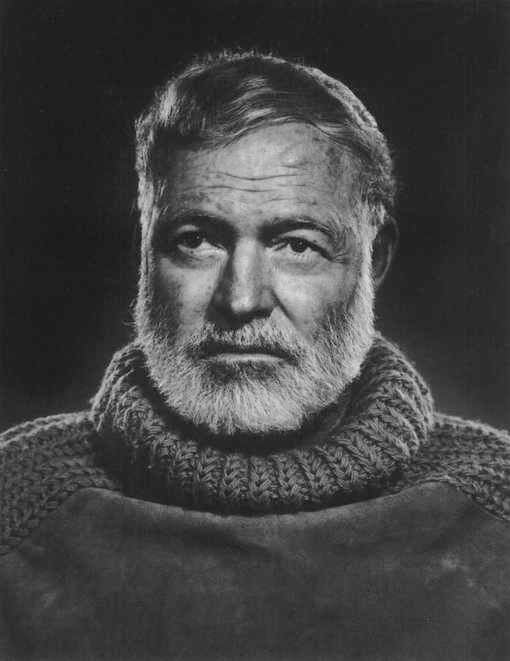HEMINGWAY AND THE ART OF WRITING by NEIL BOYD

If you haven’t heard it before, let me introduce you to the shortest and perhaps most satisfying short story ever written.
It’s often attributed to Ernest Hemingway. Peter Miller, a literary agent, said he was told this anecdote by a “well-established newspaper syndicator” about 1974. It goes like this.
Hemingway was lunching at Luchow’s, a German restaurant in Manhattan, with a number of writers when he boasted he could write a story in only six words with a beginning, a middle and an end.
They all agreed this was not possible. So he told them to put ten dollars each on the table. If they judged he had failed in his attempt, he’d match their bets. If he succeeded, he would rake in the kitty.
He scribbled six words on his table napkin and passed it around. One by one they conceded he had proved his point.
The words were “FOR SALE, BABY SHOES, NEVER WORN.”

Reading it, my guess is that you like me cast your mind back to family or friends who were delivered of a stillborn child. After months of waiting, hoping and dreaming, a little life ends before it began. One of life’s most painful tragedies.
Six everyday words have the power to bring tears to your eyes.
Research shows this story goes way back. For example, a short ad. in 1906 went: “For sale, baby carriage; never been used. Apply at this office.”
Four years later appeared a similar classified: “Baby’s hand-made trousseau and baby’s bed for sale. Never been used.”
There were more stories, culminating in June 1921 in Life magazine. It reprinted a paragraph from Louisville Courier-Journal under the title “Denouement”:
“The great American dramatist will be the man or woman who can write a one-act play as poignant as a seven-word want-ad which the Houston Post discovers: For Sale, a baby carriage; never used.”
None of these stories featured the name of Hemingway. All I can say is if he didn’t make up this six-word gem, he might have done. There are times when words have the same emotional power as a Nocturne by Chopin.
What is the test of a good short story apart from its brevity?
Ideally, there is so much hinted at that it should haunt the reader for days or even a lifetime.
It should raise universal questions even when it deals with local issues.
It should preferably be ambiguous, where the writer as well as the reader is somewhat lost at the mysterious feelings and strange habits of our fellow humans.
According to Hemingway, “We are all apprentices in a craft where no one ever becomes a master.” He admitted to his old pal F. Scott Fitzgerald, “I write one page of masterpiece to ninety-one pages of shit. I try to put the shit in the wastebasket.”
Thoughtless critics sometimes said his art was in writing simply about simple things. He was incensed. He never wrote about simple things.
“It is all very well for you to write simply and the simpler the better. But do not start to think so damned simply. Know how complicated it is and then state it simply.”
In Death in the Afternoon (1932), he elaborated The Iceberg Theory of Writing.
“If a writer of prose knows enough of what he is writing about he may omit things that he knows; and the reader, if the writer is writing truly enough, will have a feeling of those things as strongly as though the writer had stated them.
Note the difference between an author describing a character’s state of mind and the character betraying his state of mind. As Mark Twain put it, “Don't say the old lady screamed. Bring her on and let her scream.”
Hemingway knew this by instinct. He was never tempted to write, “The bar-room was disgusting, the smell overwhelming and there was a loud ticking clock that got on everyone’s nerves.”
He wasn’t interested in descriptions for their own sake, only in what his characters are thinking and feeling. He would write something far more gripping:
“My God, this damn place stinks. Hey, Mac, yeah you. Ain’t you the bar tender? Can’t you stop that damn clock ticking?”
There’s enough in that brief paragraph for any would-be writer to assimilate in a week.
In my next piece I shall deal with the perils of beginners writing about sex.
Man is supposed to be the maker of his destiny. It is only partly true. He can make his destiny, only in so far as he is allowed by the Great Power.
- Mahatma Gandhi